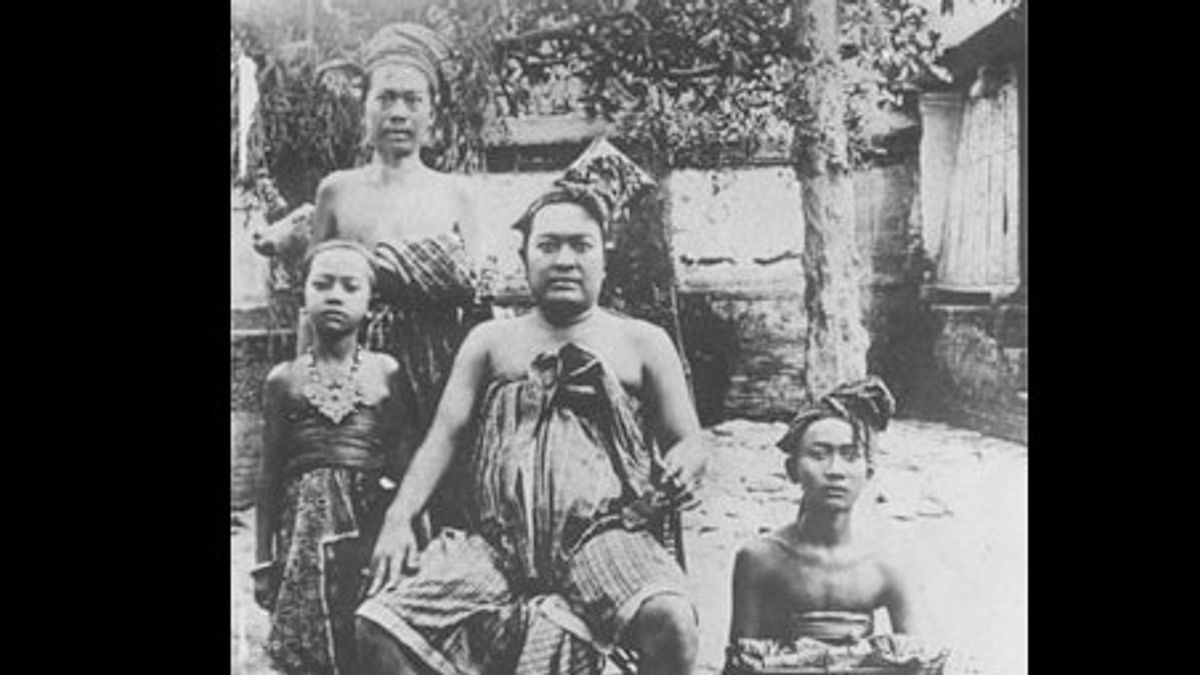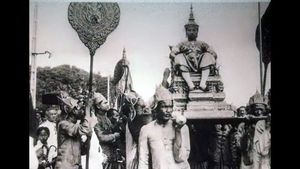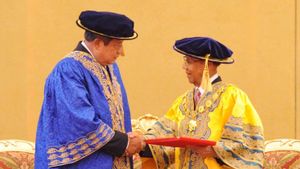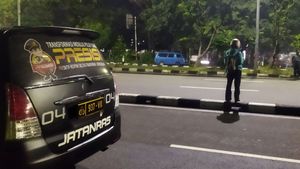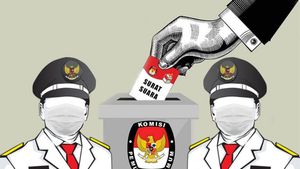JAKARTA - The courage of Ida Dewa Agung Jambe II has had a major influence on the history of the Indonesian nation. The King of Klungkung is proof that not all kingdoms must submit to the Dutch. Instead of choosing to work together, the Supreme God actually launched the Klungkung Puputan War.
A war that incidentally fought to the last drop of blood. The Lord of Jambe and all his people took part in the fight. His courage is remembered widely throughout the country. Even though he and his people died.
The colonial government of the Dutch East Indies was never satisfied with exploiting the wealth of the motherland. The owner of power continues to perpetuate his intention to monopolize trade. The trials vary. Sometimes they approach local authorities. Sometimes they also look for reasons for local authorities to attack.
This step was seen when the Dutch began to look at the island of Bali as a new money mine in the 1900s. Local governments are also trying to be controlled. A series of agreements with local authorities were perpetuated. The Netherlands offered a lucrative deal.
The Dutch can monopolize the trade of opium or opium in Bali. Meanwhile, local rulers get a percent each year of the Dutch monopoly rights. However, the facts are not in harmony. The policy is considered to bring a lot of harm, rather than benefits.
The ruler of the Klungkung Kingdom, Agung Jambe, also felt it. He became one of the kings who signed the agreement with the Netherlands. Agung Jambe felt the policy was one-sided. The Klungkung Kingdom did not get big profits.
The strategy is played. They tried to perpetuate trade secretly. The intention did not last long. The Dutch perpetuated a troublesome patrol throughout Klungkung. Moreover, Dutch patrols began to enter other areas of the Klungkung Kingdom.
The problem angered Agung Jambe. The match was perpetuated to give a warning to Dutch patrols.
The sound of the clubs sounded simultaneously throughout Gelgel so that 50 Dutch patrols were invaded from all majors. At that time, Cokorda Raka ran from the north with the intention of ordering Laskar Klungkung to stop the resistance and withdraw but not be ignored, even Cokorda Raka was shot.
Meanwhile, Dutch patrols withdrew towards Klungkung and at the same time as attacks from all majors, the Bangke Bahi cannon was fired so that Lieutenant Haremaker suffered serious injuries and died after arriving in Gianyar. At that time, no Gelgel Laskar died while on the Dutch side beside Lieutenant Haremaker was killed, there were 9 Dutch soldiers who suffered minor injuries, namely: Hangen, Battema, Van der Heijden, Rostma, Bezemer, Sowinadi, Taevan, Kartadjo and Saiman, Made Sutaba and his friends in the book History of Resistance Against Imperealism and Colonialism in the Bali Region (1983).
The attack angered the Dutch. The power of attorney continued to mobilize troops with complete weapons. The attack was directed at Laskar Klungkung, who in fact was the Royal Klungkung army. The Dutch, who were superior in arms, then easily ransacked the power of the Klungkung kingdom.
Dutch troops were able to penetrate the Laskar Klungkung barricades and drilled Puri Smarapura on April 28, 1908. The King of Klungkung Agung Jambe then launched the Puputan War. War to the last drop of blood.
All Laskar Klungkung and the people also participated in the Klungkung Puputan War. The advantage of the weapon made the Dutch a easy victory. Moreover, the Dutch often implemented strategies to destroy opponents with non-stop cannon fire.
The king and his followers died. The royal treasure was looted by the Dutch a lot. This incident marked the plenary fall of Bali to the Dutch. However, the great influence of the Jambe Gods' resistance was not easily forgotten.
The spirit and courage of Dewa Jambe inspired all Indonesian people against the invaders. As a form of appreciation, the Indonesian government of the era of President Joko Widodo (Jokowi) gave the title of Indonesian National Hero to Agung Jambe on November 10, 2023. The government wants the spirit and courage of the Lord Agung Jambe to continue to be an inspiration for future generations.
In Puputan Klungkung, 108 members of the palace family, including women and children, as well as about 1,000 soldiers were killed. The massacre carried out by the Dutch colonial government in the two deputies (Badung and Klungkung) received criticism in Europe that humiliated the Dutch government.
The Dutch colonial government in Indonesia is seen as incompetent in defeating small kingdoms in Bali that do not unite and must sacrifice thousands of human lives. In fact, what should have been done for the conquest could have been done with diplomacy, "said I Ngurah Suryawan in the bookGenealogy of violence and subaltern upheaval (2010).
VOIR éGALEMENT:
The English, Chinese, Japanese, Arabic, and French versions are automatically generated by the AI. So there may still be inaccuracies in translating, please always see Indonesian as our main language. (system supported by DigitalSiber.id)
